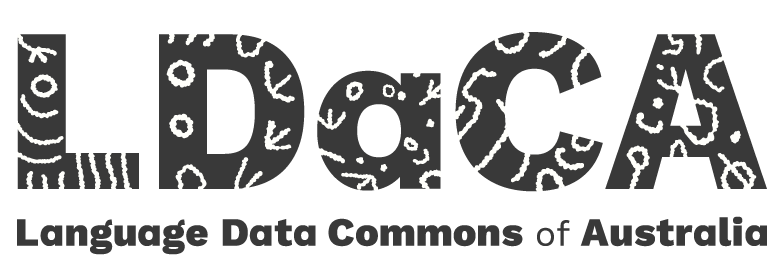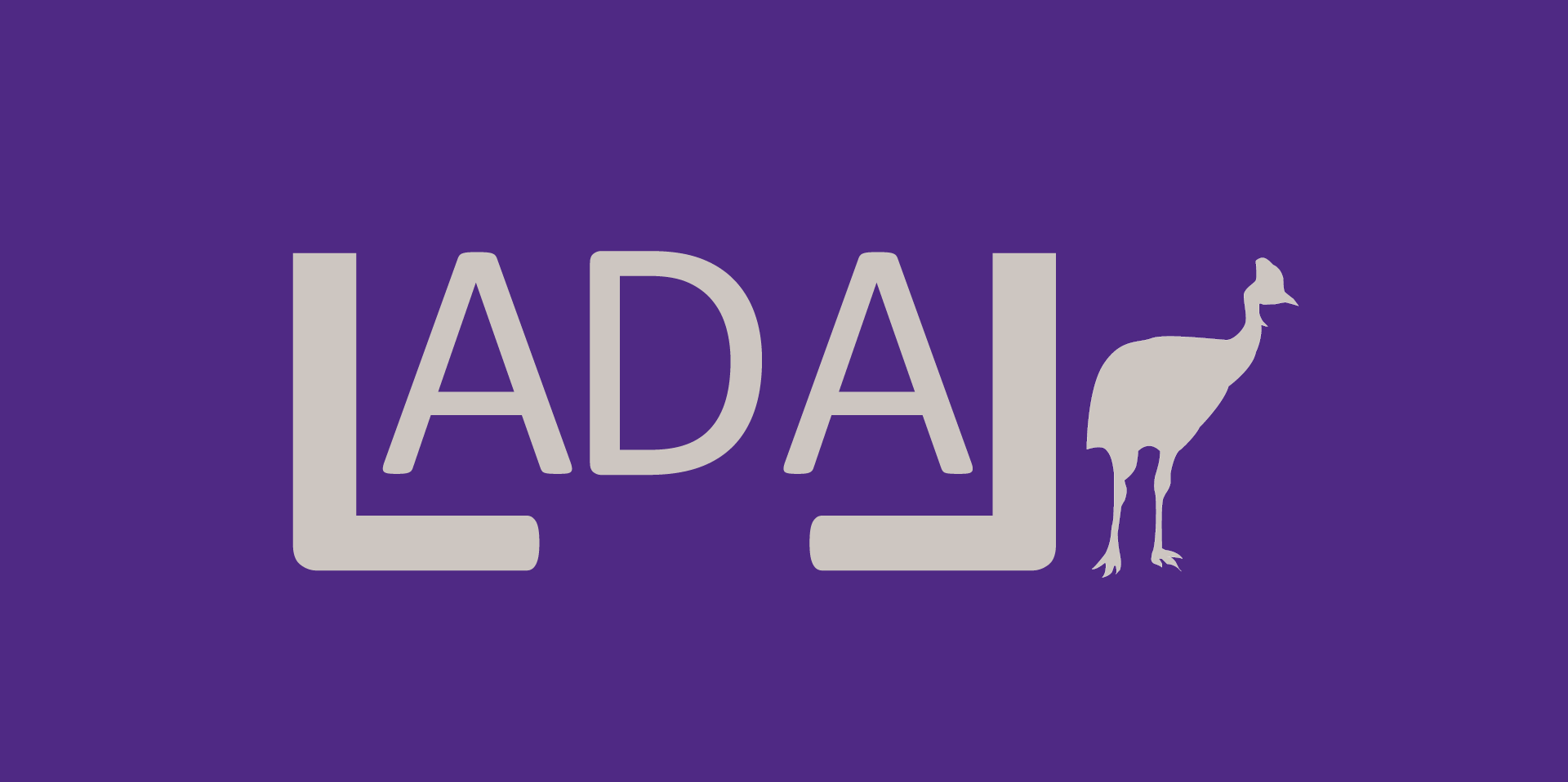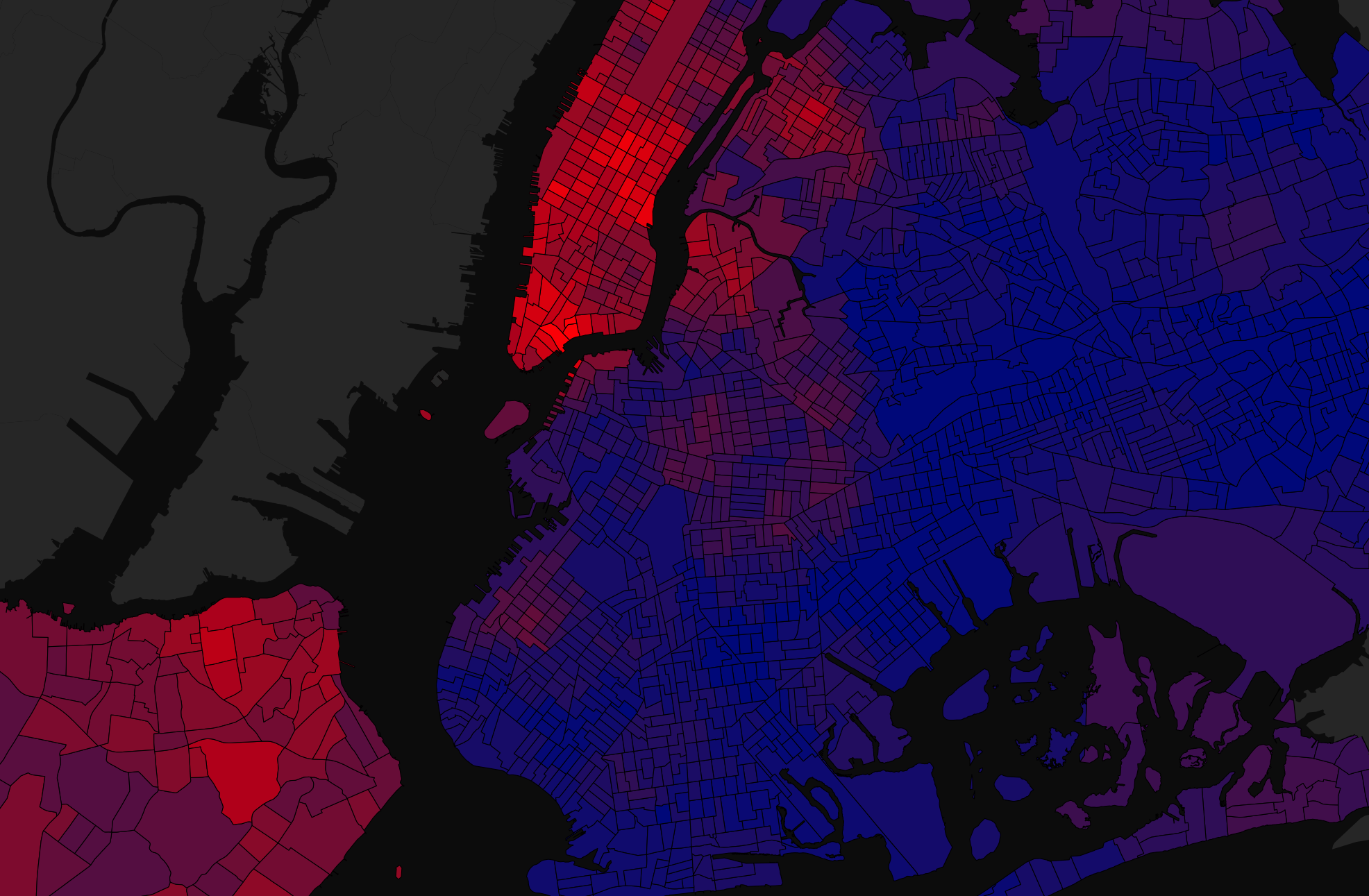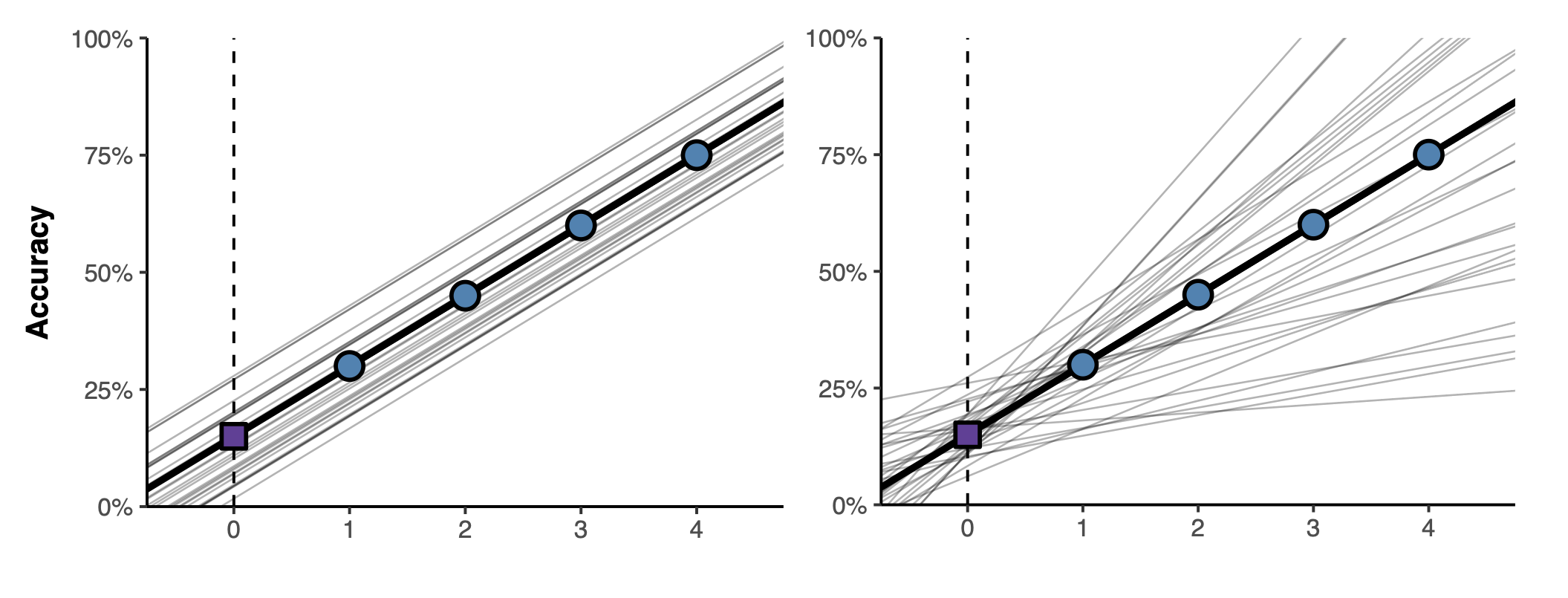EVENTS & COMMUNITY

Welcome to LADAL Events!
Upcoming Events
New events announced regularly!
📧 Email list: Subscribe at ladal@uq.edu.au (subject: “email list”)
🐦 Twitter/X: Follow @slcladal
📘 Facebook: LADAL page
Check this page frequently for updates on upcoming workshops and webinars!
Past Events
LDaCA Partnership

LADAL is proud to be part of the Language Data Commons of Australia (LDaCA), a national research infrastructure.
What this means for events:
- Access to LDaCA infrastructure and tools
- Collaboration with national partners
- Broader reach and impact
- Enhanced resources for participants
Visit the LDaCA events page for additional opportunities!
Workshops

LADAL offers practical, hands-on workshops on text analytics, statistics, data visualization, and computational methods. These events range from introductory sessions for beginners to advanced techniques for experienced researchers.
Workshop highlights:
- Practical, hands-on learning
- Real datasets and examples
- Code and materials provided
- Expert instruction
- Collaborative environment
2024 Workshops
Introduction to Computational Text Analytics
When: May 23-24, 2024
Context: UQ Digital Cultures and Societies Hub
Duration: 2 days
Are you overwhelmed by text data?
This workshop introduces computational text analysis fundamentals using LADAL resources.
You’ll learn:
1. Why and where computational methods are appropriate
2. Preparation and preconditions for computational text analysis
3. R programming with Jupyter notebooks
4. Common methods and libraries for text analysis
5. Project management for computational research
Perfect for researchers who:
- Have more text than they can analyze manually
- Feel like they’re missing patterns in their data
- Want to work more efficiently
- Need systematic, reproducible approaches
No programming experience required!
Text Analytics for Humour Studies
When: February 9, 2024
Context: Australian Humour Network 2024 Conference
Duration: Half-day
Discover text analytics for humor research!
This workshop showcases how LADAL resources can elevate humor studies through computational methods.
Topics covered:
- Text analytics techniques for humor analysis
- Data processing for humorous texts
- Visualization of humor patterns
- Practical applications
- Expert guidance and Q&A
Ideal for:
- Humor researchers
- Linguists studying pragmatics
- Digital humanities scholars
- Anyone interested in computational approaches to humor
2023 Workshops
Unlock the Power of Text Analytics with LADAL
When: November 22, 2023
Context: Research Bazaar Queensland 2023
Duration: Half-day workshop
Hands-on introduction to text analytics!
Join us for a practical exploration of LADAL’s text analytics capabilities.
What you’ll gain:
- Essential NLP skills in R
- Hands-on demonstrations
- Insight extraction techniques
- Data processing best practices
- Analytics and visualization methods
Perfect for:
- Researchers new to text analytics
- Those wanting to expand their toolkit
- Anyone with text data to analyze
Advanced Dimension Reduction Methods
When: August 25, 2023
Context: AcqVA Aurora Workshop
Duration: Half-day
Resources: GitHub Repo | Interactive Jupyter Notebook
Master dimension reduction for linguistic data!
Explore PCA, MDS, and Factor Analysis for language research.
You’ll learn:
- Basic concepts and principles
- Similarities and differences between methods
- Practical applications in linguistic research
- Identifying latent factors in language data
- Interpreting and visualizing results
Requirements:
- Basic statistics knowledge
- Familiarity with R
- Bring your laptop and sample datasets
Advanced Methods and Online Computing (t-SNE, UMAP, Jupyter)
When: January 16, 2024
Context: AcqVA Aurora Workshop
Duration: Half-day
Advanced dimension reduction meets reproducible research!
Learn t-SNE and UMAP methods plus create interactive Jupyter notebooks.
Part 1: Dimension Reduction
- t-SNE implementation
- UMAP for complex data
- Comparing methods
- Visualization techniques
Part 2: Reproducible Workflows
- Creating Jupyter notebooks from R
- Connecting RStudio to GitHub
- Using Binder for interactive notebooks
- Sharing reproducible analyses
Perfect for:
- Researchers with complex multivariate data
- Those wanting to share reproducible work
- Anyone interested in modern visualization
Requirements:
- Basic R knowledge
- GitHub account (mandatory)
- RStudio installed
- Bring your own datasets
2022 Workshops
From Tables to Forests
When: June 17, 2022
Context: AcqVA Aurora Workshop
Duration: Full day
Resources: GitHub Repo | Rendered Script
Two essential skills in one workshop!
Part 1: Working with Tabular Data
- Loading and inspecting data
- Data processing techniques
- Summarizing tabular data
- Best practices
Part 2: Tree-Based Models
- Conditional inference trees
- Random forests
- Boruta feature selection
- Strengths and limitations
- Implementation in R
Applications:
- Language science research
- Predictive modeling
- Feature selection
- Classification tasks
Network Analysis and Topic Modeling on Twitter Data
When: May 18, 2022
Time: 9:00 AM - 12:00 PM AEST
Venue: Online
Partners: Australian Digital Observatory (ADO), ATAP, ARDC
Analyze social media data with cutting-edge methods!
Topics:
- Introduction to network theory
- Network analysis in R
- Topic modeling of tweets
- Working with Twitter data
Dataset:
- Open-source 2019 Federal Election Twitter data
Free for Australian researchers and students!
Monotreme Mania! Comparative Text Analytics on Twitter
When: March 2022
Venue: Online
Partners: ADO, ATAP, ARDC
From data collection to analysis!
You’ll learn:
- Collecting Twitter data with twarc
- Transforming Twitter data
- Text analytics using R
- Comparative analysis techniques
Note: Fully booked - watch for future offerings!
Power Analysis with R
When: February 1, 2022
Context: AcqVA Aurora Lab Workshop
Duration: 4 hours
Resources: GitHub Repo
Design studies with appropriate sample sizes!
Using pwr and simr packages:
- Power analysis fundamentals
- Sample size determination
- Effect size estimation
- Post-hoc power analysis
- Practical applications
Data Visualization with R (ggplot2 and likert)
When: January 25, 2022
Context: AcqVA Aurora Lab Workshop
Duration: 4 hours
Resources: GitHub Repo
Create publication-quality visualizations!
Topics:
- ggplot2 fundamentals
- Customizing plots
- Likert scale visualization
- Best practices
- Real-world examples
Introduction to Jupyter Notebooks for Text Analysis
When: November 24, 2021
Context: Digital Humanities Australasia 2021
Duration: 3 hours
Facilitators: Sara King, Simon Musgrave
Perfect for absolute beginners!
Learn to use Jupyter notebooks for text analysis with no prior programming experience required.
Hands-on introduction to:
- Jupyter notebook interface
- Basic text analysis
- Interactive computing
- Reproducible workflows
2019-2020 Presentations
Best Practices in Corpus Linguistics
When: May 20-24, 2020
Event: ICAME 41 (International Computer Archive of Modern and Medieval English)
Location: Heidelberg, Germany
Speaker: Martin Schweinberger
What lessons from the Replication Crisis?
Topics:
- The Replication Crisis in science
- Implications for corpus linguistics
- Best practices for high-quality research
- Ensuring reproducibility
- Maintaining transparency
Implementing LADAL at UQ
When: October 30, 2019
Event: ARDC eResearch Skilled Workforce Summit
Location: Sydney, Australia
Speakers: Michael Haugh & Martin Schweinberger
Resources: Slides
Building digital humanities infrastructure!
How UQ established LADAL as school-based support for digital humanities research.
Topics:
- Institutional implementation
- Infrastructure design
- Community building
- Lessons learned
Using R for Corpus Linguistics
When: April 2, 2019
Event: CoEDL Corpus Workshop
Location: Melbourne, Australia
Speaker: Martin Schweinberger
Resources: Slides
R for corpus linguists!
Discussion topics:
- Why R for corpus linguistics?
- Sustainability in corpus research
- Replicability challenges
- Practical workflows
Panels
Computational Thinking in the Humanities

When: Thursday, September 1, 2022
Time: 5-8 PM Queensland | 10 AM-1 PM Finland | 8-11 AM UK
Format: Online, 3-hour workshop
Co-organized by:
- Australian Text Analytics Platform (ATAP)
- FIN-CLARIAH
- Australian Digital Observatory
Supported by:
- UQ Digital Cultures and Societies Hub
Panel Description
What does computational thinking mean for the humanities?
This international workshop brought together speakers from multiple countries to address fundamental questions:
Key Questions:
- How can humanities embrace computing on their own terms?
- How do we resist having our problems “solved” for us?
- What are the methodological foundations of computational humanities?
- Does computation change the nature of what we do?
Format:
- 2 plenary talks
- 4 lightning presentations
- Panel discussion
Program
Part I (90 minutes)
Plenary 1: Krista Lagus (University of Helsinki)
“Bridging the impossible - How to avoid bringing technodystopia to the social sciences”
Watch on YouTube
Plenary 2: Barbara McGillivray (King’s College London, Alan Turing Institute)
“Computational approaches and the Humanities: what might await us?”
Watch on YouTube
Part II (80 minutes)
Lightning Talks:
Marissa Takahashi (QUT, Australian Digital Observatory)
Watch on YouTubeMartin Schweinberger (UQ, LADAL co-director)
Watch on YouTubeEetu Mäkelä (FIN-CLARIAH technical director)
Watch on YouTubeSteven Coats (University of Oulu)
Watch on YouTube
Panel Discussion (20 minutes)
Speakers

Krista Lagus
Full Professor, University of Helsinki
Centre for Social Data Science (CSDS)
Research interests: Quantitative and qualitative data analysis for understanding individual and social well-being practices (loneliness, peer support, mindfulness, life-philosophical lecturing).

Barbara McGillivray
Lecturer in Digital Humanities, King’s College London
Turing Research Fellow, Alan Turing Institute
Editor-in-Chief, Journal of Open Humanities Data
Previously: Language technologist at Oxford University Press, data scientist at Springer Nature.
Recent book: Applying Language Technology in Humanities Research (Palgrave Macmillan, 2020)
Webinar Series
All webinar recordings available on the LADAL YouTube channel!
LADAL Webinar Series 2022
6 expert webinars on computational linguistics topics
Watch all 2022 webinars on our YouTube channel!
2022 Webinar Playlist
Featured Webinar Details
1. Spread of Lexical Innovations (Jack Grieve) - March 7, 2022

The Spread of Lexical Innovation is Constrained by Cultural Patterns
Abstract:
Tracks the geographical diffusion of new words across the US and UK using multibillion-word Twitter corpora. Shows how lexical spread is constrained by both physical factors (distance, density) and cultural patterns.
Speaker:
Jack Grieve - Professor of Corpus Linguistics, University of Birmingham & Turing Fellow
4. Bayesian GLMMs with brms (Bodo Winter) - November 7, 2022

Bayesian generalized linear mixed models with brms
Abstract:
After reviewing problems with null ritual significance testing, demonstrates how to fit complex Bayesian models using the brms package. Discusses priors, convergence, and reporting.
Why Bayesian?
- Shift from p-values to parameter estimation
- More flexible than frequentist approaches
- Handle non-convergence gracefully
- Philosophically sound
Speaker:
Bodo Winter - Senior Lecturer, University of Birmingham
UKRI Future Leaders Fellow
Editor-in-Chief, Language and Cognition
LADAL Webinar Series 2021 (LADAL Opening)
25 webinars from international experts!
The inaugural LADAL Opening Webinar Series featured voices from linguistics, data science, and digital humanities covering diverse topics in computational language research.
All 25 webinars available on YouTube!
Series ran: June - November 2021
Topics: Computational methods, corpus linguistics, NLP, statistics, reproducibility
Complete Webinar List
All recordings linked below:
- MuPADRF (S. Th. Gries) - June 3
- LADAL & ATAP (M. Schweinberger & M. Haugh) - June 10
- Data Collection in the Field (F. Meakins) - June 18
- UZH Text Crunching Center (G. Schneider) - June 24
- Corpus-Based Media Linguistics (M. Bednarek) - July 1
- Bayesian vs Frequentist (N. Levshina) - July 8
- Online Data Collection (M. Vos) - July 15
- Reproducible Research (A. Miotto & J. Toohey) - July 22
- Neurolinguistics of Bilingualism (V. DeLuca, T. Voits & J. Rothman) - July 28
- Introducing Network Analysis (S. Musgrave) - Aug 2
- Speech Recognition with Elpis (J. Wiles & B. Foley) - Aug 12
- Societal Big Data (M. Laitinen) - Aug 19
- Tackling Social Media Data (S. Hames) - Aug 26
- Data-Driven Learning (P. Crosthwaite) - Sep 2
- Text Classification & Hate Speech (G. Wiedemann) - Sep 13
- VARIENG (T. Nevalainen, T. Hiltunen & A. Liimatta) - Sep 21
- AntConc 4.0 (L. Anthony) - Sep 27
- Distributional Semantics (G. Desagulier) - Sep 30
- Usage-Based Language Learning (L. Janda) - Oct 7
- Analyzing Historical Publications (T. Säily) - Oct 15
- Git and GitHub (S. Guillou) - Oct 18
- Replicability & Robustness (J. Flanagan) - Oct 28
- Linguistic Phylogenetics (J. Macklin-Cordes & E. Round) - Nov 4
- Analyzing Emigrant Letters (C. P. Amador-Moreno) - Nov 11
- AARNet & CloudStor (S. King) - Nov 18
Stay Connected
Back to HOME | View Tutorials | Read News